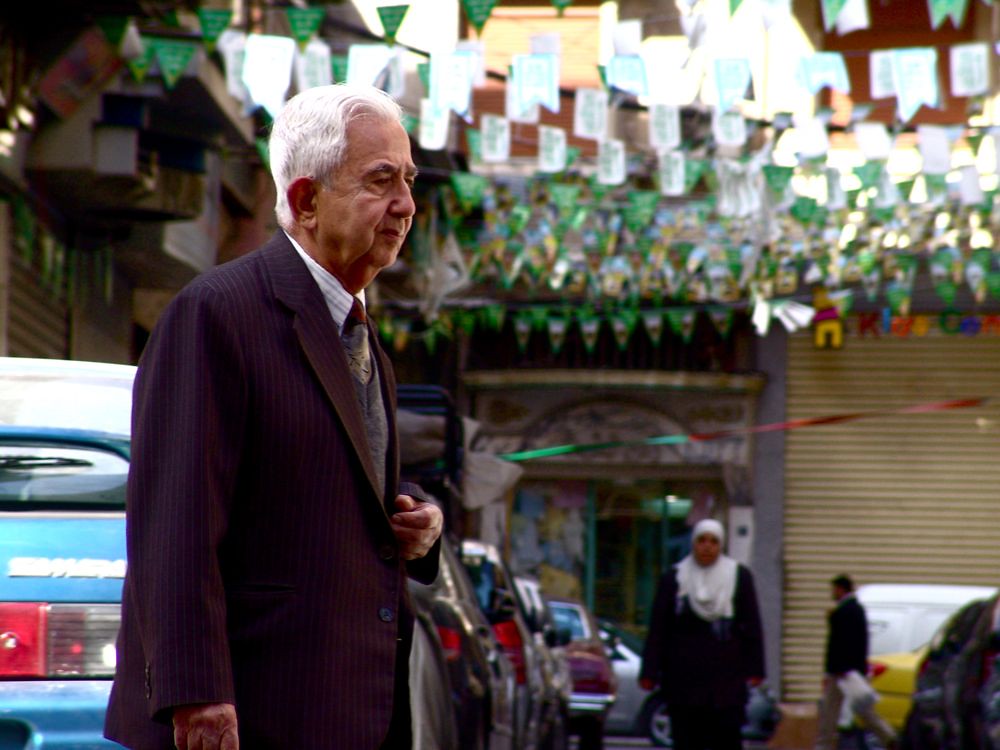Alleviating Elderly Poverty in Jordan

Jordan suffers from a pension system which is not high enough for the cost of living nor accessible enough to elderly people, particularly women or refugees. This issue has been exacerbated by economic conditions which have worsened since the COVID pandemic and the cost of living crisis – the poverty rate increasing from 13% in 2006 to 24.1% in 2022 – and may continue to worsen with the expected economic fall-out of the Gaza war.
The Issue
Jordan has an ageing population but with additional pressures on its social services from the influx of displaced people. In 2021, only 45.8% of the elderly population in Jordan received pensions and 66% of pensions were below the national poverty line. According to the 2018 HelpAge International survey, two-thirds of older Jordanian men and women had debts.
Older women and elderly refugees are particularly affected: only 16% of older women receive pensions and elderly refugees cannot receive their pensions from Syria, instead they rely on humanitarian assistance. As one older Syrian refugee said: “Having access to my pension would allow me to get back some dignity and live a dignified life. I wish for it every day,” according to HelpAge.
According to HelpAge International, 80% of women in Jordan had never been in official work and were reliant on their husbands’ pensions or provisions from their male children. Reliance on male relatives financially is not only a source of embarrassment for older women but is also insufficient: in 2017 (before the COVID pandemic and cost of living crisis) the annual food and non-food expenditures of a 1–2-member household in Jordan were double an individual annual pension. While employment among women under the age of 60 has increased in recent years, participation of women in the workforce in Jordan is among the lowest in the world, HelpAge International reports.
In addition, although there are positive features to the intergenerational model of “growing old,” this societal expectation stops the proliferation of care-homes and maintains the expectation for daughters and daughter-in-laws to fulfil hands-on caregiving duties, according to the 2021 article.
Syrian Refugees
Jordan is one of the countries which has been highly affected by the Syrian crisis and has absorbed the third highest number of Syrian refugees in the world. It has taken in more than 643,000 and is among the top five highest host countries for refugees per capita.
In 2018, 80% of Syrian refugees in Jordan lived below the poverty line. UNHCR considers old people as one of the most at-risk groups of displaced people.
With less capacity to work, limited access to health care and experiencing loneliness, elderly Syrian refugees cannot return to Syria to obtain the paperwork required for a pension. Even for refugees of working age, it is hard to contribute consistently to the voluntary pension scheme when they often participate in informal forms of work or not at all.
Governmental Efforts
Jordan spends more on social protection systems for the elderly than most countries in the Middle East, evidenced by its many and sometimes duplicated systems: National Aid Fund (NAF), National Zakat Fund (NZF) and Ministry of Social Development (MoSD) all provide emergency cash transfers for the vulnerable. Elderly people in Jordan experiencing poverty can receive the bread subsidy, monthly aid or winter aid programmes of the NAF and the MoSD pays for places in care homes for elderly Jordanians who cannot afford them.
The recent National Strategy for Senior Citizens (2018-2022) focuses on eradicating elderly poverty in Jordan, building a platform for elderly voices in decision-making, providing health care services and establishing care homes. Although its implementation requires reform, these reforms are the basis for a newly formed strategy for 2025-2030. The government also aims to achieve universal health coverage by 2030 and in the meantime has subsidized health care for more than 1.3 million Syrian refugees
These efforts prove the government’s commitment to supporting the vulnerable and elderly living in poverty but cannot replace a social pension which would provide for women, refugees and those who have not been in formal work and are therefore unable to make consistent payments.
NGOs
Jordanian NGO, Tkiyet Um Ali, founded by Princess Haya bint Al Hussein in 2003 is a shining example of a local initiative to eradicate hunger. Tkiyet Um Ali serves across every governate of Jordan those who live below the food poverty line and who do not receive any form of financial contribution. In 2023, it served more than 5 million food parcels and 500,000 hot meals. This is necessary aid and immediate relief for the elderly provided their income is below $19.95 a month, do not receive a pension, are not homeowners nor have an employable male relative over the age of 18 in their family.
HelpAge International provides financial support for the elderly, in cash payments and finding ways for elderly people to create income, particularly within the refugee community in Jordan. They advocate for the strengthening of Jordan’s pension system to a social pension system which does not require previous contributions.
Looking Forward
The good news is that there is a vision to alleviate elderly poverty in Jordan through long-term governmental strategies as well as immediate relief delivered by governmental and non-governmental bodies. These objectives aim to tackle a lot of needs and improvement and reform are paving the way. Strengthening Jordan’s pension system to a non-contributory system would provide necessary access to pensions for all elderly Jordanians, particularly women and refugees. This would be key in restoring dignity and independence in old age. Until then increasing the number of women and refugees in the formal workforce remains a gradual process but one that would lead them to receive pensions.
– Miriam Hulley
Miriam is based in Cheltenham, Gloucestershire, UK and focuses on Good News and Global Health for The Borgen Project.
Photo: Flickr
